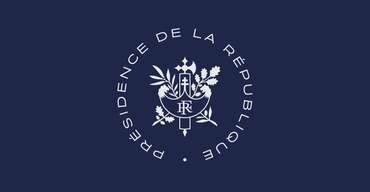Competitivity is the foundation of our economic sovereignty. Our rules and laws must foster innovation as well as growth, and align with our efforts to support the development of European champions essential to reducing our dependencies in strategic digital markets.
France and Germany recognize the imperative of sustaining a regulatory environment that enables European companies to unleash the full potential for growth and productivity offered by the EU’s Single Market. The Digital Rulebook has significantly broadened over the past years to keep up with fast-paced developments in the digital economy. Following the rapid expansion of the digital acquis, stakeholders voice concerns over the increasingly complex regulatory landscape characterised by overlaps between regulations, administrative burdens, and a fragmentation of the legal framework. The status quo generates disproportionate costs and legal uncertainty, affecting European companies’, and particularly SMEs, capacity to grow and innovate, and hinders strategic decision-making due to a lack of long-term predictability over the evolution of the regulatory landscape.
France and Germany, stressing the urgency of addressing these concerns, call on the European Commission to conduct a thorough review of the digital acquis and take decisive measures to buttress the competitiveness of EU companies. In this respect, France and Germany welcome the presentation of a Digital Omnibus by the European Commission. In keeping with the objectives of the EU Competitiveness Compass, the Digital Omnibus and Digital Fitness Check must pursue an ambitious simplification agenda for the Digital Rulebook and swiftly provide meaningful relief from excessive administrative burden for economic actors.
France and Germany have identified four pillars that should guide the European Commission’s approach to simplifying the existing rulebook :
- Reinforce the risk-based approach by ascertaining the optimal balance between the necessary protection of public interests under regulation (ex. safety, fundamental rights) and the burden imposed on economic actors, in line with the principle of proportionality;
- Streamline and standardise the definitions, scopes, administrative formalities and compliance procedures of the EU’s digital regulations;
- Reinforce tracks for full harmonisation and coherence in the implementation of the regulatory framework across the Single Market;
- Implement innovative tools and approaches to reduce compliance costs and increase legal certainty for businesses and administrations, especially for SMEs and SMCs.
France and Germany, in line with the last Franco-German Council of Ministers held this summer, call on the European Commission to rely, among other principles these pillars with a view to including targeted simplifications of the GDPR in the Digital Omnibus. In addition to a strengthened harmonized interpretation of GDPR through the swift implementation of European Data Protection Board’s commitments, this would include, in particular, simplification moves, especially for SME and small mid-caps, aimed at (i) strengthening the risk-based approach through the impact assessment to be led, (ii) lightening administrative formalities and reporting requirements with regards to low risks data processing, (iii) developing compliance tools.
With respect to the AI Act, France and Germany call for a 12-month postponement of the AI Act obligations on high-risk AI systems to guarantee legal certainty in the context of delays in the drafting of secondary legislation.
Latest news
See all articles and topics-
18 January 2026 Statement by Denmark, Finland, France, Germany, the Netherlands, Norway, Sweden and the United Kingdom.

-
2 March 2026 Joint declaration of President Macron and Chancellor Merz.

-
1 March 2026 Joint Statement by the Leaders of France, Germany and the United Kingdom on indiscriminate Iranian attacks on countries in the region.

-
2 March 2026 Visit to the Île Longue Operational Base.

